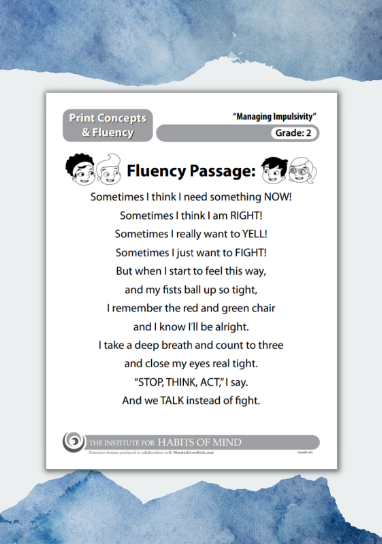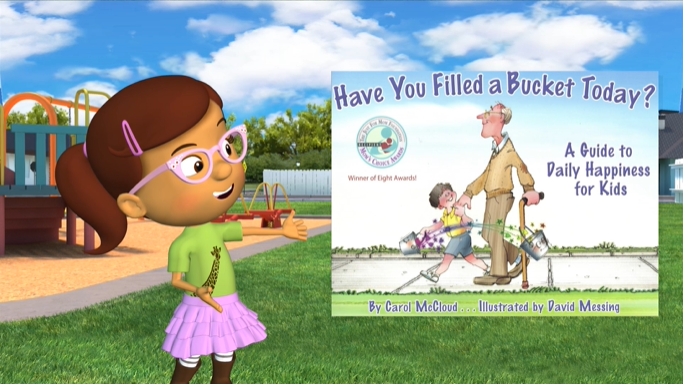Which Habits Of Mind Should I Start With To Change Classroom Culture?
On a scale from 1-10, how important would you say classroom culture is to the overall success of your students? If your answer is somewhere between 7-10, then we definitely agree. Teachers spend so much time ensuring that their students are being respectful, cultivating best practices for behavior management, and implementing social-emotional learning techniques that help students regulate themselves and their conflicts.
But what happens when your students are struggling to transition from their home environment to the classroom?
Which Habits of Mind should you start with to change (or re-teach) classroom culture?
3. Managing Impulsivity - Stop, think, act
Whether students are blurting out answers mid-lesson, or saying mean and hurtful things to each other, working on managing impulsivity can help students identify the possible impact of their behaviors. Our Managing Impulsivity animation is a great way to introduce the concept to your students in a relatable way. Creating a visual sign that says “Stop, Think, Act” and displaying it somewhere where it can be seen everyday can help reinforce managing impulsivity. We even have a free printable fluency passage on managing impulsivity for 2nd graders to recite!
2. Listening With Understanding and Empathy
If you are trying to cultivate a more empathetic classroom where students are actively listening to each other, focus on listening with understanding and empathy. Empathy can be a difficult skill to master even for adults so early learners need to see it modeled quite regularly if they are expected to practice it. Being mindful of the way you, as an educator, interact with your colleagues and students can help build an empathetic classroom culture. In addition, storytelling and reading aloud can also be powerful tools in modeling listening with understanding and empathy. Maria from the Habits of Mind animations has a great book review on Have You Filled a Bucket Today? By Carol McCloud.
1. Remaining Open to Continuous Learning
“Success” is merely a word that has a million definitions for a million people, but truly successful students are those who remain open to new lessons both in the classroom and out. Dr. Bena Kallick of the Habits of Mind Institute explains that “the real joy of learning is in remaining open to continuous learning” and that one can never truly “master” the Habits of Mind as they are part of an ongoing process. Building a culture of continuous learning can be as easy as transparency with your students and admitting when you don’t know the answer to a question. Creating joy from finding the answers together via lessons, surveys, and experiments are all ways to model continuous learning.
Anu Watts, M.A Teaching
Wonder Media Project Coordinator


